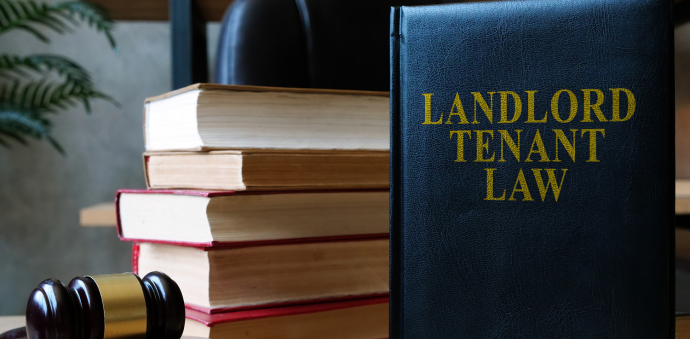Tenant Lawsuits: Suing a Landlord for Pest Infestation Negligence in North Carolina
Pest infestations such as cockroaches, bedbugs, rodents, or fleas can transform a rental property into an unsafe and unhealthy living environment. When landlords neglect their legal responsibilities to maintain pest-free housing, tenants in North Carolina may suffer not only discomfort and health issues but also property damage and emotional distress. In such cases, tenants have the right to seek legal relief by suing landlords for pest infestation negligence.
Understanding Landlord Responsibility for Pest Control in North Carolina
Under North Carolina law, landlords have a legal duty to provide habitable rental housing under the implied warranty of habitability (N.C. Gen. Stat. § 42-42(a)). This means rental units must be safe, sanitary, and free from health hazards, including pest infestations.
Key Duties Include:
- Delivering units free of pests at lease commencement
- Addressing pest infestations promptly once notified by tenants
- Maintaining common areas in multi-unit properties free of pests
- Complying with applicable health and safety codes
Failure to uphold these duties may constitute negligence, making landlords liable for resulting damages.
Grounds for Tenant Lawsuits Due to Pest Infestation Negligence
Tenants may sue landlords for negligence when:
- The landlord knew or should have known about the infestation but delayed or failed to take corrective action.
- The infestation caused health problems such as allergies, asthma exacerbation, skin conditions, bites, or emotional distress.
- The infestation damaged or destroyed tenant property, such as furniture, bedding, or clothing.
- The landlord’s failure caused constructive eviction, forcing tenants to vacate the premises.
Proving Pest Infestation Negligence: What Tenants Need to Show
To succeed in a lawsuit, tenants must establish these elements:
- Duty
Landlords have a legal duty to provide habitable, pest-free rental housing. - Breach of Duty
Landlords breached that duty by ignoring or inadequately addressing the infestation. - Causation
The landlord’s breach caused the pest infestation or allowed it to worsen, directly harming the tenant. - Damages
Tenants suffered actual damages such as medical bills, property loss, emotional distress, or relocation costs.
How to Build a Strong Tenant Case Against Landlord Negligence
1. Keep Detailed Documentation
- Take clear dated photos/videos of pests, damage, and living conditions.
- Maintain a pest log noting sightings, infestations, and their impact.
- Save all communications with the landlord reporting the infestation and requesting remediation.
2. Obtain Professional Pest Inspection Reports
- Get an independent pest inspection to verify infestation severity and origin.
3. Gather Medical Records and Bills
- Document any health issues caused or worsened by pests, including doctor’s notes and treatment costs.
4. Collect Evidence of Property Damage
- Itemize and provide proof of damaged belongings such as furniture, mattresses, or clothing.
5. Show Landlord Inaction or Delay
- Demonstrate landlord awareness through written notices and evidence of failure to act promptly.
Tenant Legal Remedies for Pest Infestation
Legal options for tenants suing negligent landlords include:
- Monetary damages for medical expenses, property loss, and emotional distress
- Rent abatement for diminished value or inhabitable conditions
- Lease termination if the unit is unlivable due to infestations
- Injunctions ordering landlords to remediate infestations promptly
Risks and Considerations
- Tenants must show they fulfilled responsibilities, such as maintaining cleanliness and cooperating with pest control.
- Tenant negligence causing or worsening pests may limit landlord liability.
- Lawsuits require time, documentation, and sometimes legal representation for best results.
How LawPassport Supports Tenants Pursuing Pest Negligence Claims
LawPassport membership provides tenants in North Carolina with:
- Access to experienced tenant rights attorneys specializing in pest and habitability cases
- Customizable legal documents for notices, complaints, and settlement demands
- Guidance on evidence gathering and case preparation
- Legal advice for negotiations, mediation, or court claims
- Assistance in protecting security deposits and avoiding retaliation
Conclusion: Assert Your Rights Against Negligent Landlords
Pest infestations disrupt your health and home life, but North Carolina law provides tenants with actionable rights and remedies against negligent landlords. Building a strong case backed by thorough documentation and legal expertise is essential for success.
If you face persistent pest problems ignored by your landlord, don’t hesitate to seek legal help. Join LawPassport to access trusted attorneys, legal tools, and personalized support that empower you to protect your home, health, and finances.
Don’t suffer silently get the legal support you deserve. Become a LawPassport member today and fight back against landlord pest negligence in North Carolina.
Read: How to File a Legal Demand for Compensation Against Your Landlord
Read: Can I Break My Lease for Noise, Smells, or Pest Issues?
